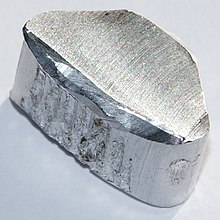aluminum
aluminum
Aluminum is a light metal with a silver color that is covered with a thin layer of aluminum oxide, which is formed in the first moment of contact with air and quickly. Aluminum oxide has a much higher melting point than pure aluminum. Aluminum is non-toxic in its metallic state and has no magnetic properties.
Aluminum is a standard metal used for industrial and non-industrial purposes. Aluminum is available in different shapes and grades. The type of aluminum grade selected depends on your application. The characteristics of each type of graded aluminum sheet, which is listed at the bottom and top of the list below, will help you easily find the right aluminum for you.
The following are the basics to consider when choosing an aluminum grade:
Ductility or workability
Welding capability
Machining
Corrosion resistance
Heat treatment
Strength – power
End-use applications
Aluminum is resistant to corrosion and wear almost without maintenance. Compared to other metals, it has a unique weight and density and weighs about 1.3 times the size of iron, steel, copper or brass. Aluminum foil conducts heat better than other conventional metals and provides similar electricity to copper products.
Because aluminum is a non-toxic metal, it can be used in food preparation machines. It is non-combustible (non-combustible) and has a reflective nature, which makes it suitable for light installations. Some of the final applications of aluminum foil include transportation, food packaging, furniture, electrical applications, design, machinery and equipment for a variety of aluminum grades, which will be completely different for different grades of aluminum.

